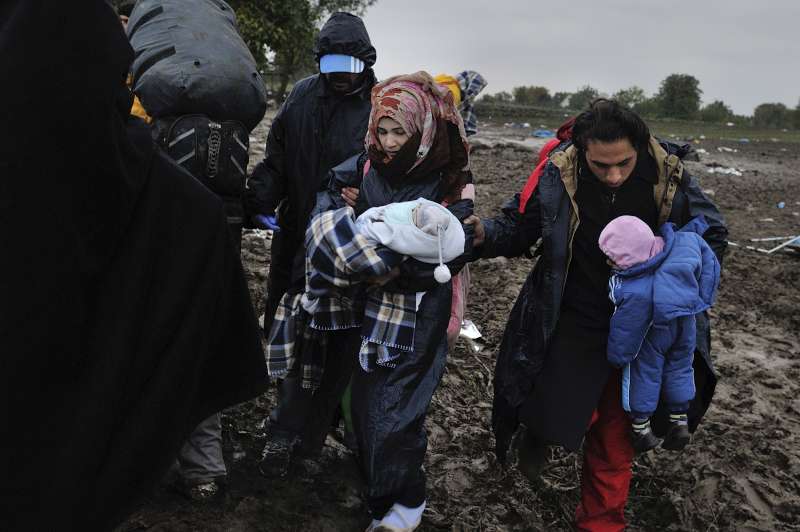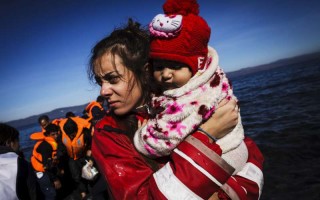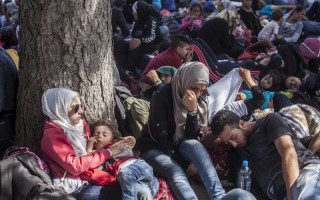
Syrian refugee Mohamed, his wife Fatima and their two babies wait in Serbia to cross into Croatia. © UNHCR / M. Henley
GENEVA, Nov 24 (UNHCR)—The UN refugee agency has warned that a fresh humanitarian situation is developing at border crossings from Greece into the Balkans, where new and uncoordinated restrictions have led scores of people to protest by going on hunger strike and several to sew their mouths shut.
On Friday last week, UNHCR in a joint statement with the International Organization for Migration and UNICEF, expressed concern at the risks stemming from the new restrictions, which chiefly involve people being profiled on the basis of their alleged nationalities.
At the borders between Greece and the former Yugoslav Republic of Macedonia, and between the former Yugoslav Republic of Macedonia and Serbia, nationals of Syria, Afghanistan and Iraq are being allowed to cross. But nationals of other countries are being stopped, leaving about 1,000 people stuck at the main entry point into the former Yugoslav Republic of Macedonia from Greece.
With frustrations growing, protests have erupted among some 200 people—mainly Iranians, Bangladeshis and Pakistanis. Some 60 people are on hunger strike, and 11 individuals are reported to have stitched up their mouths
“The negative consequences of these actions are already becoming clear as people become backed up in countries along the route and without proper solution to their situations,” UNHCR spokesperson Adrian Edwards told a media briefing in Geneva, adding that a “new humanitarian situation is developing in Europe that needs urgent attention.”
In response, UNHCR has assisted about 150 people to return voluntarily over the past 48 hours to Athens where they are being advised that they can seek asylum. Near Edomani, the border point, UNHCR and partners have set up a transit centre consisting of seven heated rubb halls—large, tent-like structures where stranded people can stay the night and receive a hot meal.
Edwards cautioned that, with refugees and migrants expected to continue arriving in Europe via Greece over the winter and into 2016, it is imperative that the situation be managed in such a way as to minimize the risks of new problems being created.
“All people have the right to seek asylum, irrespective of their nationality and to have their individual cases heard. Proper information needs to be provided to people affected by decisions at border points, and proper counselling needs to be available. In addition, arrangements to accommodate people affected must be in place,” he added.
With the current situation in Greece, UNHCR remains concerned that the measures on the borders into the former Yugoslav Republic of Macedonia and between the former Yugoslav Republic of Macedonia and Serbia will play into the hands of people smugglers as people seek alternatives to the chaotic situations in which they find themselves.
“As we head into winter, stabilization and proper and comprehensive management of Europe’s refugee and migrant situation remains urgently needed,” Edwards said.





